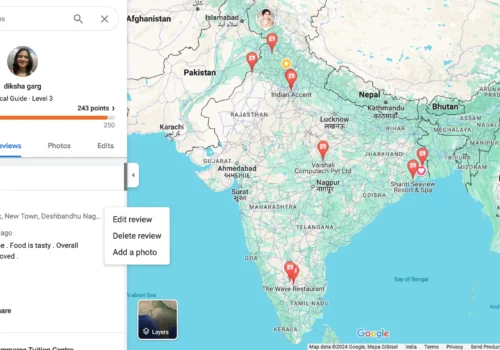Ok. Show of hands.
How many of you often wonder how you could get more people to share your blog posts?
How many of you slave away every single day to get visitors to sign up to your newsletter but get no significant increase in subscriptions?
How many of you can’t seem to convert more of your traffic into sales?
Well, this may be because you don’t know what makes your visitors tick.
It may be that your relationship with them floats only on the surface. And like most relationships that don’t go deep, getting them to say yes to your offers becomes difficult.
But here’s the thing:
If you want your visitors to take action. If you want them to click your affiliate link, buy your services or subscribe to your newsletter, you have to know what motivates them.
One of the ways to do this is knowing the psychological triggers that get them to engage with you. When you know these, you can apply them to your site to move people to take action.
And what are these triggers? There are many. But in this article, I’ll show you three important triggers that we at Convertica always bear in mind whenever we optimize our clients’ websites.
Ready?
3 Psychological Triggers that Increase Conversions In [Year
#1. Social Influence and compliance
We are social beings. As much as we value our individuality and uniqueness, we can’t help but seek other people’s approval, too. We tend to look to others for validation. And it’s something we can’t just easily shake off.
This urge to be part of a group is just as important online. That’s why many of us spend hours chatting on Facebook groups or fishing for approval on Instagram. This is ingrained in our psyche. For some more than others.
Take for example this classic conformity experiment conducted by psychologist Solomon Asch. In this experiment, one hundred and twenty-three students went through what they were told was a visual test. Each person was taken into a room with 5-7 other participants. In actuality, these other participants (called confederates) were planted by Asch.
The task was to look at two cards. The first card had one line on it and the other had three lines of different lengths. The participants were then asked to say out loud which of the lines in the second card matched that of the first one. The answer was always very clear. Now here’s the catch. During the first few trial tests, the students planted by Asch gave the right answer. But on some of the tests, they were told to give the wrong answer.
And guess what happened? Whenever the confederates gave the wrong answer, a majority of the real participants repeated the confederates’ answer even though it was very obvious that the answer was wrong.
This shows that our decisions can often be influenced by other people. Don’t believe it?
Well, this study has been conducted many times by many other researchers. With the same effect.
Here’s a video of a more recent one by National Geographic’s Brain Games.
But what does this have to do with your website?
It turns out that even when we’re buying something online or choosing what we share on social media, these basic instincts still guide our actions.
As Morton Deutsch and Harold Gerard say, many of our actions are guided by the fact that we have the need to be right and liked. And you can use these needs to prod people to take the actions you want them to on your site.
One of the ways to use the power of social influence is by using third-party proof. This means showcasing reviews, testimonials and/or trust badges. This shows your readers that other people, preferably their peers, have benefited from using your products or services.
For example, if you look at Jitendra’s Services page, he has a section on Community Love. And it’s filled with praise for him by other thought leaders in the space. This helps solidify his target customer’s belief that he is the person to hire. If other people are happy with Jitendra’s work, then by extension, they will be making the right decision, too.
Another important place to apply this is on your headlines. That’s right! If you want more people to give your blog posts a second look or if you want a social media ad to get higher conversions, then start with a catchy headline that hits our need to not miss out on what our peer group already knows. Here are some real-life examples at work.
Basecamp’s call-to-action button with the text, 4.950 people signed up in the last week alone.
BloggersIdeas pop-up to get people to click through and read their post on The Best Facebook Ad Spy tools
And lastly,
Neil Patel’s headline, “The Biggest Influencers in the World Do This” (And What You Can Learn From Them)
#2. Reciprocity
Would you give a whole day’s salary in exchange for a packet of sweets?
You’re probably thinking not.
But an experiment by The Behavioral Insights shows that this small gesture has a significant influence on whether you’ll do it or not. They asked investment bankers to donate a day’s salary to charity. The bankers who were given a packet of sweets before they were asked, were twice as likely to donate their salary compared to those who didn’t get any.
See. When someone does something for us, we feel that it’s our moral obligation to return the favor. And it doesn’t have to be something big. Even a small gesture can make a huge difference. This is what social psychologists call the reciprocity principle. And it works wonders online.
Here are some things you can do to apply this principle to your websites.
- Give a very free report. This doesn’t only show your readers what you know. But it also makes them feel indebted to you for sharing your knowledge.
- Respond to any comments your visitors might have for you on your blog or social media. It’s a small thing but the person on the other end will feel grateful that you’ve taken time out of your day to respond.
- Give away some of your best stuff. When you tell your audience something that genuinely helps them in building their website, they’ll think very highly of you and your efforts to help them.
- Give surprise gifts to your best customers. This doesn’t have to be something big. It’s just something to let them know that you appreciate them.
#3. The power of trust
Trust moves people online.
If they trust you, they’ll buy from you. If they trust the words that come out of your mouth, they’ll listen to you. If they trust your integrity as a person, they’ll tell others about you.
In short, trust increases conversions. When your visitors trust you, they’ll have no problem doing the things you want them to do. Whether you want them to subscribe to your newsletter, to share your blog post or to enroll in your new course, it won’t be a big stretch for them to take action. That’s because they already trust you.
Remember that you’re essentially in a relationship with your website visitors. Like any relationship, trust is imperative for it to thrive.
This is a no-brainer. Think about yourself. Think about the time you wanted to buy something important. Did you buy it from just any site?
No. Most likely you did a lot of research. I considered a lot of sites. And finally chose a store that you felt you could trust your money with. Or you perhaps went straight to Amazon (or another store you’ve bought from before) because you knew that you could trust them.
As you can see, trust is an essential ingredient for getting a person to engage with you.
So how can you nurture a trusting relationship with your visitors? Here’s how.
Start by having a trustworthy-looking blog. This means having a layout that is in-line with current web standards. Even more importantly, design the site with user experience in mind.
Does this really matter, you might be wondering? Well, Yes. In more ways than you might think. As it turns out, cluttered sites that confuse the visitor make them trust you less. When a person is confused, he won’t spend the time to figure things out. He’ll leave without even thinking twice about it.
And guess what? That won’t even be the end of it. The next time he sees your site, he’ll already have a preconceived idea of mistrust in your business. So even if you retarget him, all that ad spend is for nothing because you’re targeting someone who doesn’t trust you in the first place.
Another thing that you can do is to take the time to research who your visitors are. Knowing this helps you write the content your visitors want to read. This is extremely helpful when you’re writing a sales copy or a blog post. When you know your visitors, you meet them where they are. When you meet them where they are, they feel that you know them well. And people who feel that their feelings are validated and understood are happy. Happy people tend to trust whoever helps make them feel that way.
Quick Links:
- Top 11 Best Conversion Rate Optimization Tools
- UseProof Review: Increase Website Conversions By 200%
- List of Best Trust Badges To Increase Conversions
- Beginners Guide To Conversion Rate Optimization Through Call-To Actions
Conclusion: Psychological Triggers To Increase Conversions
These are only three of the ways you can get your site visitors to engage with you. Apply these principles on your site to help increase conversions. As you can see, a lot of it is all about having a good relationship with your clients. About knowing what they want and making it easy for them to engage with you.
This is how you get people to visit your site again and again. This is how your business survives online in an increasingly competitive landscape. This is how you get fans who stay loyal to you and become your brand ambassadors.








